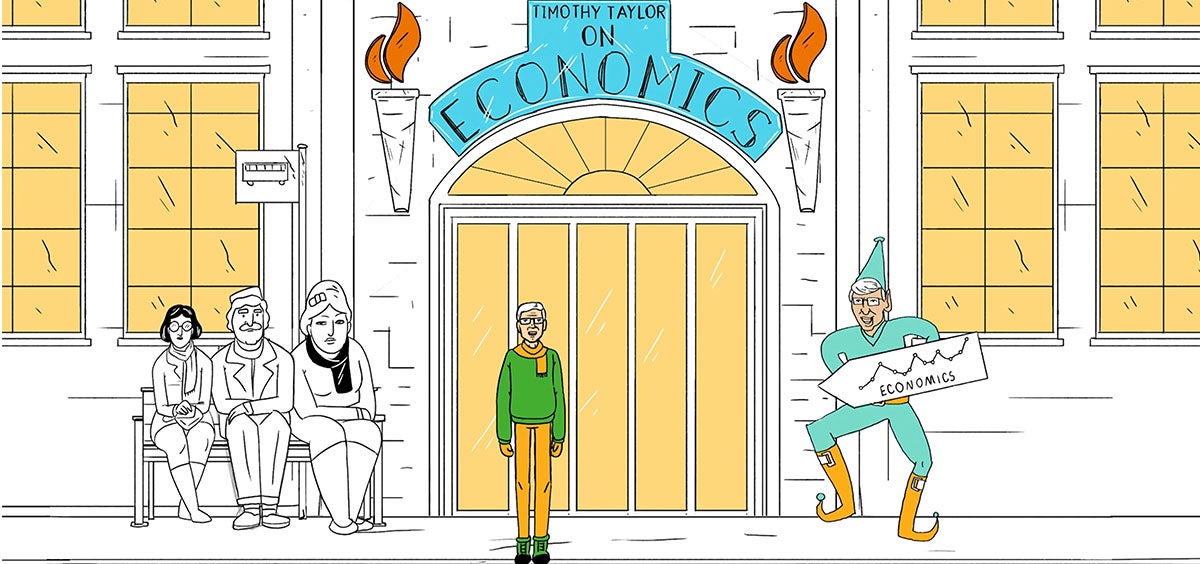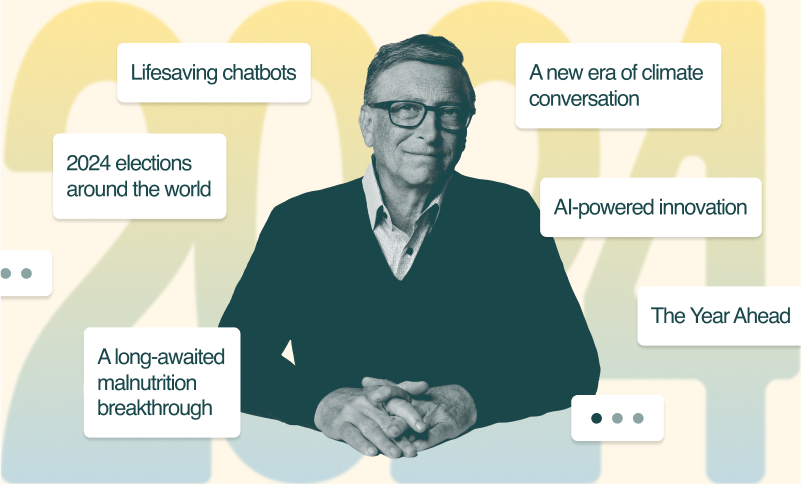Hearing Mandy talk about her students reminded me of one of the biggest strengths of America’s public schools: They are intended to help every child succeed.
I love taking online courses. With just a few hours of dedicated watching, I’ve been able to dive deep into topics as varied as the science of language, the human body, glassmaking, particle physics, the weather, classical mathematics, birdwatching, and the history of everything. Before there were streaming platforms like Wondrium (also known as the Great Courses), which offers on-demand access to some of the best courses out there, I sometimes gave the DVD sets of my favorites as holiday gifts.
Three of those favorites are economics courses by Timothy Taylor, who is one of my all-time favorite professors. I watched all of them over a decade ago; even so, when one of my kids recently asked me to recommend a book on economics, Taylor’s video lectures were the first thing I thought of.
The simply titled Economics, 3rd Edition is Taylor’s most straightforward offering. Divided into 36 episodes (lectures), this online course is one of the best primers out there on the fundamentals of the field—covering concepts and topics like price floors and ceilings, the division of labor, supply and demand, public goods, banking, international trade, inequality, regulation, and more. Whether you’ve never taken an economics class before, or you majored in the subject and graduated with honors, I’m confident that Taylor’s approach to these not-so-basic ideas will still teach you something.
The next course is Taylor’s America and the New Global Economy. It’s a fantastic introduction to macroeconomics that charts 50 years of global economic history to explain how each region of the world developed and changed over time. I found Taylor’s region-by-region analysis incredibly valuable, especially when he discusses the impact of certain government policies like investing in education and infrastructure. The course was released over 15 years ago, and I wish it were updated to cover the 2008 financial crisis and everything that’s happened since.
One of Taylor’s strengths as a teacher is his knack for presenting complex, often misunderstood ideas in a way that's both enlightening and accessible. This is no small feat when tackling the expansive and frequently abstract world of economics, but Taylor makes it seem easy. And nowhere is this strength more apparent than in the third course of his, Unexpected Economics—a series of 24 lectures on topics that most of us wouldn’t connect to his area of expertise. If you liked Freakonomics, you’ll probably like Unexpected Economics too.
Unexpected Economics starts with “The World of Choices,” a compelling opening lecture that reframes economics as the science of decision-making in every aspect of life. It’s an invitation to view our daily actions through an economic lens, and to consider the hidden costs and benefits that accompany every choice we make.
Given that the holidays are just around the corner, I also recommend the lecture called “Altruism, Charity, and Gifts.” Taylor’s investigation into the nature of giving concludes with him sharing what kinds of gifts are most valuable to their recipients. It was fitting to be reminded of “the deadweight loss of Christmas”—a term that economist Joel Waldfogel coined to describe his finding that the average Christmas gift is worth 15 percent less to its recipient than what its giver paid for it.
Another of the course's standout lectures, “Traffic Congestion – Costs, Pricing, and You,” turns an everyday annoyance into a lesson on the “tragedy of the commons.” As someone who loves driving and hates being stuck in a long, unmoving line of cars, it was a good reminder: All of us prefer to think of ourselves as victims of traffic, but in reality, we’re also causes of it. The lecture’s exploration of London's congestion pricing, soon to be implemented in New York City, is a testament to how economics can inform public policy solutions—and the consequences and negative externalities that arise when economics aren’t considered.
That’s a recurring theme throughout the course. In “The Economics of Natural Disasters,” Taylor explains that although natural disasters are events within nature, their effect on people “is a matter of trends and policies that have a strong economic component.” That’s why two earthquakes with the exact same magnitude on the Richter scale can have radically different outcomes depending on how many people were exposed to one versus the other—and, crucially, on the vulnerability of each exposed population. What happens beneath the earth’s surface might not be a matter of economics, but where a city is developed, how big its population is, and whether or not people live clustered together in less-stable, unregulated structures or spread out in reinforced buildings that abide by strict codes… All of that is economics.
I mentioned that I wish Taylor’s America and the New Global Economy had been updated, and I feel the same about Unexpected Economics. A lot has happened in the world since this series was recorded in 2011, and I can’t help thinking about how useful Taylor’s perspective—which uses economics to explain human behavior, health, politics, sports, prediction markets, and even parenthood—would be today.
At the same time, I was struck by the enduring relevance of the content. For example, in the lecture on natural disasters, Taylor notes that news outlets tend to disproportionately cover the ones that look scary—but not necessarily the ones that are most lethal. He quotes a fascinating study that found that for every person who dies in an earthquake, more than 19,000 must die of food shortages to receive the same expected media coverage. I’ve seen something similar when it comes to climate change: The headlines often fail to reflect the trendlines.
Long after I first watched all three of his lectures, Taylor’s work still feels fresh and urgent. More than a course on a single subject, Unexpected Economics, America and the New Global Economy, and Economics, 3rd Edition are all masterclasses in how to look at the world—and how to understand the invisible forces shaping our lives. And even if Taylor doesn’t directly apply his wisdom to the issues we face in 2023, he provides enough of a foundation for us to connect the dots and do it ourselves.





